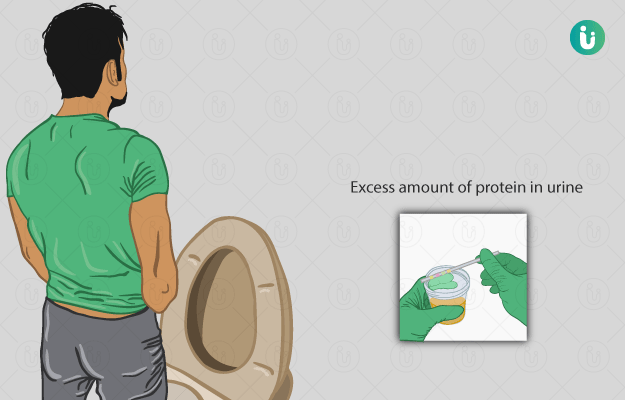Our body requires a lot of elements for proper functioning. Apart from fats and sugars, our body requires proteins to build up muscle and bone, to regulate the amount of fluid in the blood, to deal with infection and to repair damaged tissues. Protein usually stays in the bloodstream, but if it is found in the urine, the condition is called proteinuria.
In healthy individuals, the glomeruli (tiny loops of blood vessels present in the kidneys) filter the blood to remove waste products and excess water which are turned into urine. The glomeruli are unable to pass larger proteins and blood cells. Even if some of the proteins try to sneak past the glomeruli, the tubules (long thin, hollow tubes in the kidneys) reabsorb the proteins and send them back to the blood. In case of any damage to these structures of the kidneys, there would be a problem in the absorption of protein, and the proteins could flow into the urine.
The symptoms of proteinuria are usually seen in the advanced stages. They include frequent urination, foam in the urine, fatigue, swelling of body parts and loss of appetite.
There can be various causes of proteinuria but the most common is kidney damage. Kidney damage mostly occurs due to diabetes and hypertension. Other known causes of proteinuria are preeclampsia, autoimmune diseases, cancer and heart disease. Usually, proteinuria is temporary and resolves on its own but the treatment of chronic cases of proteinuria involves the treatment of its underlying cause.

 Doctors for Protein in urine (proteinuria)
Doctors for Protein in urine (proteinuria)  OTC Medicines for Protein in urine (proteinuria)
OTC Medicines for Protein in urine (proteinuria)






































